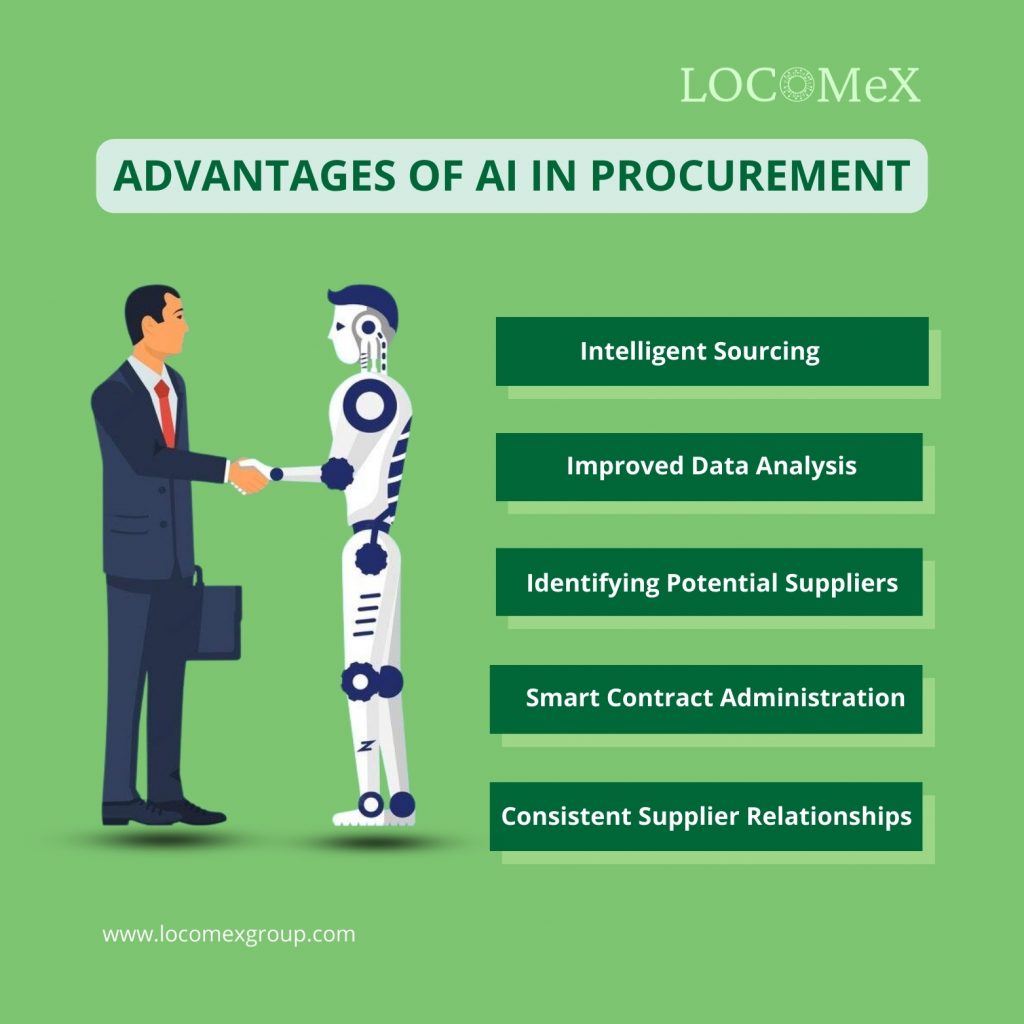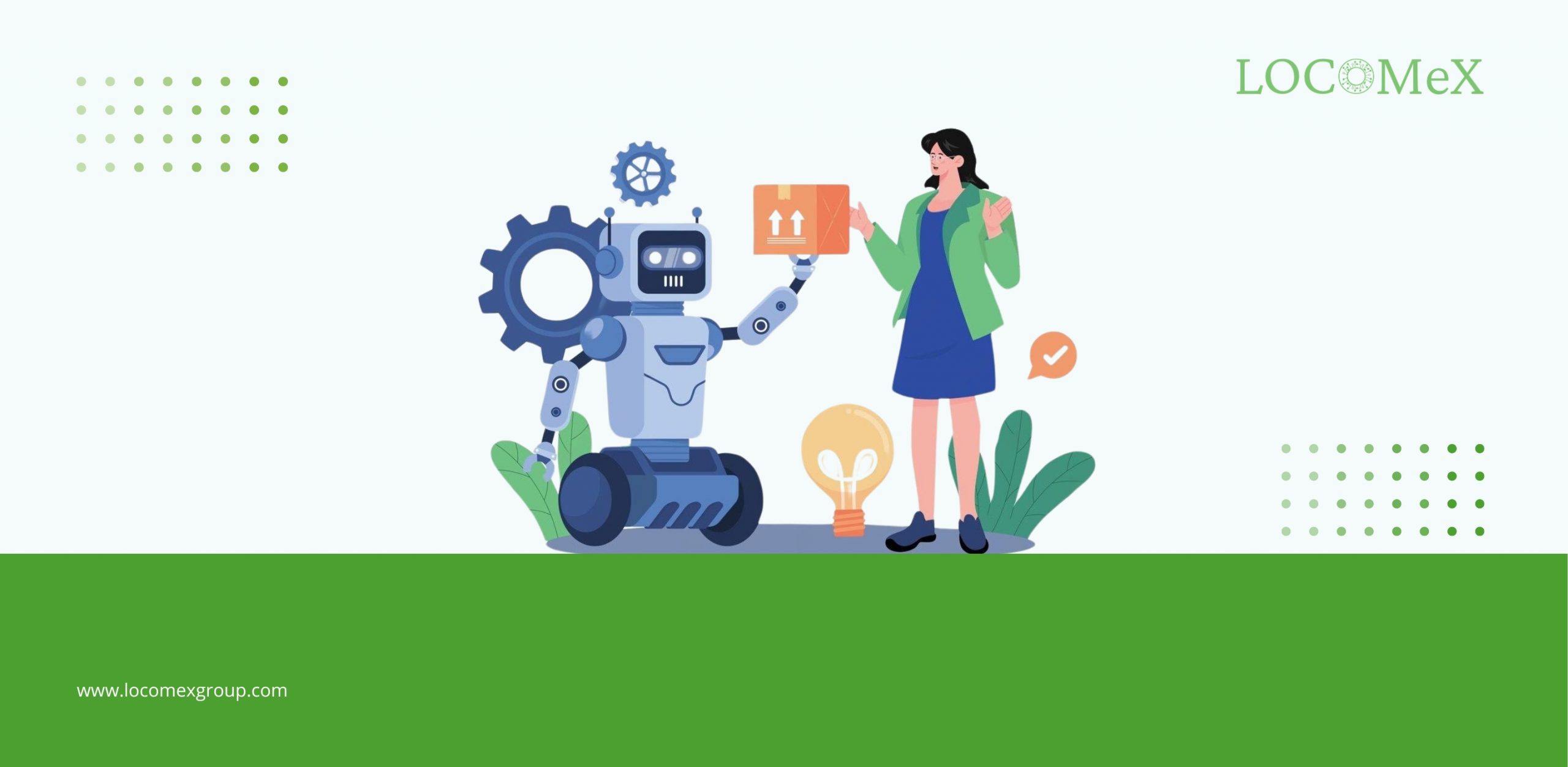452
Artificial Intelligence is converting the way companies do procurement. With AI, companies can assess large amounts of information quickly, identify important supplier dynamics, and provide actionable insights. It can transform the procurement landscape by addressing data-related challenges, automating supplier data management, and improving supplier diversity.
By utilizing AI in strategic planning, organizations are automating routine tasks, developing better negotiation strategies, and assisting in demand forecasting, paving the way toward operational excellence. With this in-depth blog, let us explore the many ways AI is used in procurement and how it is improving supplier relationship management.
Understanding Artificial Intelligence In Procurement
Artificial Intelligence in procurement refers to the use of advanced technologies and algorithms that think similarly to the human brain to enhance human efforts in managing complex procurement tasks with greater efficiency and accuracy.
The integration of AI in procurement processes aims to transform traditional methods, allowing organizations to navigate complex supply chain operations, assess supplier financial stability and demand forecasting, and take advantage of better supplier performance metrics.
In short, Artificial Intelligence in procurement is a game-changing technology that can redefine the way businesses operate, allowing them to overcome challenges more effectively and achieve transformational results.
How AI Is Reshaping The Procurement Process
1. Intelligent Sourcing
AI-powered procurement platforms can utilize supplier databases, historical data, market trends, and other criteria to select the best suppliers for specific procurement requirements.
For instance, instead of manually analyzing vast amounts of data and market trends, sourcing platforms powered by AI can quickly evaluate supplier data and historical performance metrics to provide customized recommendations in the supply chain processes.
2. Improved Data Analysis and Decision Making
The use of artificial intelligence (AI) in procurement can radically transform the sector due to its ability to process and assess large amounts of data efficiently at speeds that exceed human capabilities.
Artificial Intelligence (AI)-driven algorithms can evaluate massive amounts of data, such as supplier information and past purchase histories, to offer practical and data-driven insights. With the touch of a button, you can get a list of top-performing suppliers, saving you hours of research and helping you make informed choices based on data quality.
3. Identifying and Assessing Potential Suppliers
Supplier selection is critical to efficient procurement operations. Artificial intelligence (AI) solutions can improve the operational efficiency of the supplier evaluation process by assessing possible suppliers based on predefined criteria and current market data.
Furthermore, artificial intelligence can continually examine and analyze supplier performance, finding any deviations from the specified terms and conditions. The use of this automated review ensures that suppliers regularly meet expectations for quality, delivery, and cost.
4. Smart Contract Administration
Contract administration is a difficult endeavor that usually requires concurrent control of many agreements. Contract management technologies that use artificial Intelligence (AI) can automatically extract key phrases, clauses, and duties from contracts. This capability helps in risk management associated with supervision and noncompliance.
5. Consistent Supplier Relationships
AI-powered solutions enable rapid cooperation between procurement teams and suppliers. Enhanced communication is critical for developing transparency, accelerating issue resolution, and creating strategic alignment. Also, artificial intelligence can provide important insights into supplier risk factors such as geopolitical turmoil and financial strain. As a result, proactive risk-mitigation strategies may be implemented more easily.
Besides, AI-powered virtual assistants can quickly interpret natural language questions from procurement professionals, providing quick access to sensitive data, supply chain visibility, and contract terms. This augmentation of human capabilities enhances user experience and boosts productivity across procurement functions.
Discover the best supplier platform for diverse suppliers built on the foundation of the “AI-First” approach, which seamlessly connects diverse suppliers with their perfect-fit opportunities.

Guidelines For Implementing AI In Procurement
Artificial intelligence procurement can significantly improve efficiency, decision-making, and overall performance. However, successful adoption necessitates meticulous preparation, deliberate execution, and a focus on creating actual value in supplier management.
1. Set clear objectives and use cases
Begin by establishing specific objectives for deploying procurement AI. Determine particular pain spots, difficulties, or opportunities where AI can have a big effect.
Whether you’re automating invoice processing, optimizing supplier selection, or enhancing spend analysis, well-defined use cases can drive your AI implementation plan and assure targeted results.
2. Promote cross-functional collaboration
Implementing AI in procurement is not a one-time effort. To enhance cross-functional collaboration, involve key stakeholders from procurement, information technology, finance, and other relevant departments.
This partnership guarantees alignment, common objectives, and a comprehensive strategy for implementation. Encourage open communication, information exchange, and engagement throughout the process.
3. Maintain High-Quality Data
Data is the fuel for AI systems. High-quality procurement data is essential for obtaining accurate and relevant insights. Cleanse, normalize, and verify your data to remove mistakes and inconsistencies.
Invest in data governance measures to keep data accurate, secure, and compliant. Remember that AI is only as good as the data it is trained on.
4. Work with AI solution providers
Collaboration with competent AI solution providers can significantly improve implementation success. Engage with providers who specialize in procurement AI and have extensive knowledge of the field.
Use their experience to identify the best AI technology, tailor solutions to your unique requirements, and provide continuous support and training.
5. Track, evaluate, and iterate
Continuously monitor and estimate the performance of your artificial intelligence systems. Collect input from users and stakeholders to identify areas for improvement.
Iterate and enhance your AI solutions based on real-world use data, and quantify success by routinely assessing the impact of AI adoption on key performance indicators.
The best supply chain optimization software helps procurement professionals to make data-driven decisions, find opportunities, and manage risks.
Conclusion
In the current business scenario, companies that adopt AI technology have the potential to make better decision-making. As more businesses implement digital transformation initiatives, those who employ AI to enhance their procurement department will stand out in a crowded market. The future of procurement will be guided by artificial intelligence, and those who are prepared will profit from more streamlined, data-driven, and strategically located procedures.
Learn how LOCOMeX, with the best AI powered Supply Chain Optimization Software, is transforming procurement by leveraging AI technology to serve as a dynamic matchmaker in supply chain and procurement function, ensuring optimal alignment with marketplace opportunities while maximizing win probabilities for clients. Contact us today!




